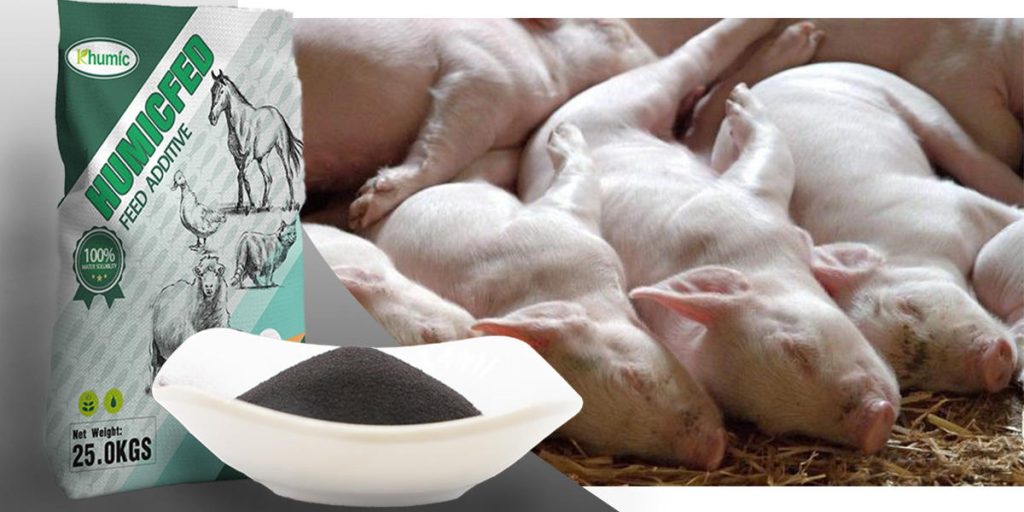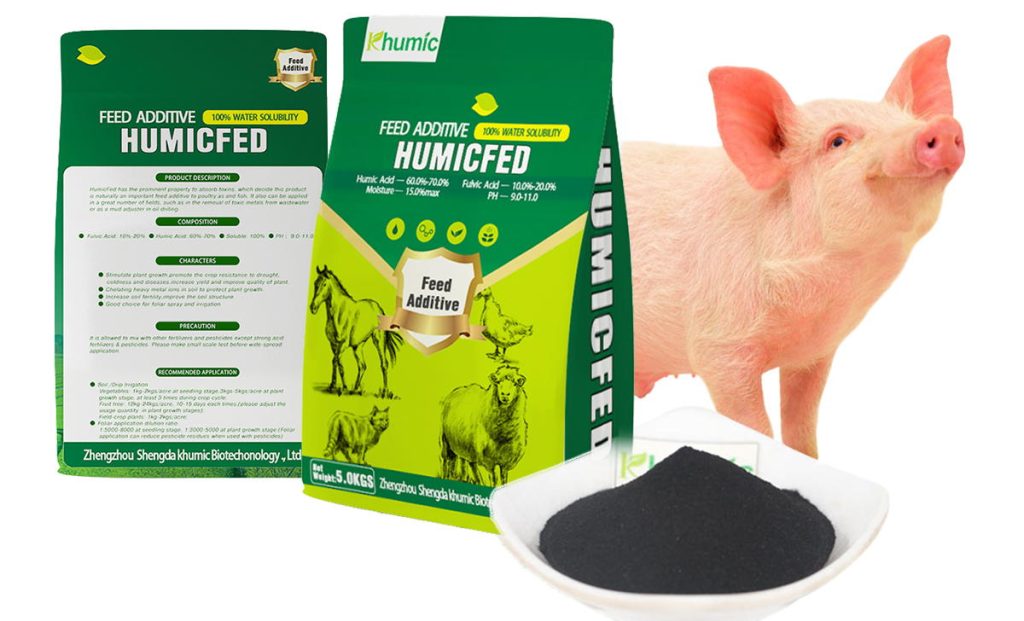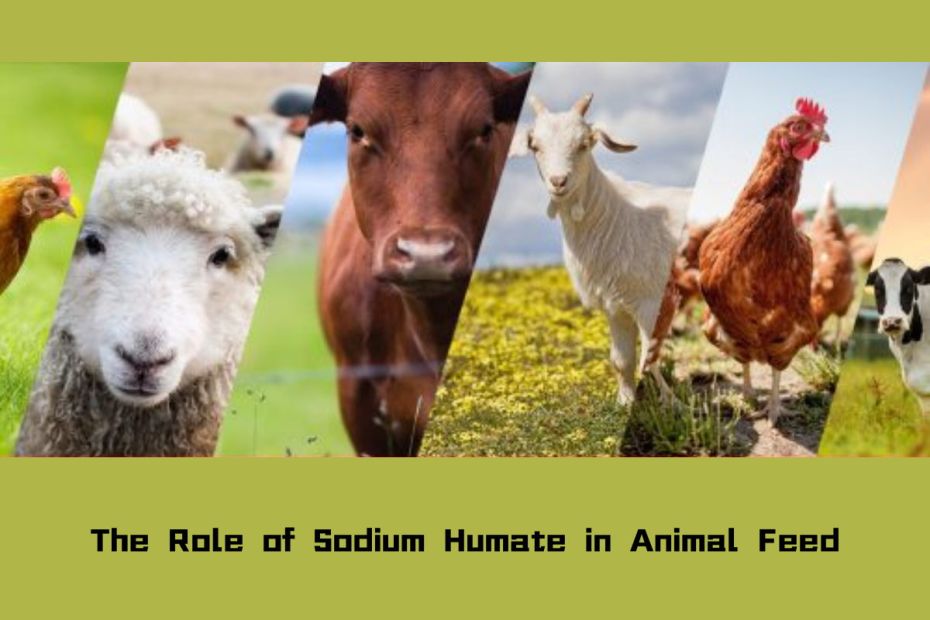Introduction
In the world of animal nutrition, various additives, and supplements are an important tool in the pursuit of optimal health. One additive that has received much attention in recent years is sodium humate. But what exactly is sodium humate? What are the benefits of adding it to animal feed? This article will take a deep dive into the role of sodium humate in animal feed.
Table of Contents
Composition of Sodium Humate
Sodium humate is made up of a variety of organic compounds, including humic acid, fulvic acid, and other organic substances. Humic acid and fulvic acid are known for their ability to improve nutrient absorption and promote overall health in plants and animals.
Benefits of Sodium Humate in Animal Feed
Adding sodium humate to animal feed can provide significant benefits to animals of all species. Whether used in poultry, livestock, or companion animal diets, sodium humate optimizes animal health from digestive support to immune enhancement:

Enhance digestive health
Sodium humate promotes digestive health. It improves intestinal health and reduces the risk of digestive diseases by enhancing the growth of beneficial intestinal bacteria and the activity of digestive enzymes. This in turn allows for a more efficient breakdown of feed ingredients, leading to better digestion and nutrient absorption.
Enhance immune function
Sodium humate promotes a healthy intestinal environment, modulates immune responses, and reduces oxidative stress. It can reduce stress on the animal’s digestive system, thereby improving the animal’s immune system, reducing the risk of disease, and making it more resistant to disease and infection.,
Reduce toxin absorption
Sodium humate binds to toxins in the gastrointestinal tract and prevents them from being absorbed into the blood. This helps reduce the negative effects of mycotoxins and other harmful substances in the feed (e.g., sodium humate quickly forms ammonium humate with ammonium, causing toxic substances to evaporate).
Improve feed efficiency
Sodium humate improves the absorption of nutrients such as minerals, vitamins, and amino acids by chelating minerals, thereby improving the overall health and growth of animals. It ensures that animals get the most nutritional value from their food. Optimization of nutrient utilization can promote animal growth, performance, and overall health.
It can also make the oil in the feed less prone to oxidation, reduce bad odor, promote the rapid absorption and diffusion of feed in the animal’s digestive organs, increase the activity of digestive enzymes, and reduce the incidence of disease.

Anti-inflammatory properties
Sodium humate can form a protective film on the intestinal mucosal cells. It has good anti-inflammatory and anti-ulcer effects. It helps to reduce digestive tract inflammation, thereby improving the nutritional absorption and overall health of animals. It also stops bleeding relieves pain, and has obvious medical effects on the blood circulation system and endocrine function.
Improve weight and health
Sodium humate can promote animal growth and weight gain, thereby improving farmers’ productivity and profitability.
After feeding chickens and ducks with humic acid agents, their immunity is enhanced, their appetite increases, their feathers are smooth, and their weight increases. Within 2 to 3 months, their weight can increase by 7% to 20% compared with normal feeding. In addition, using humic acid as a microbial carbon source and replacing 50% of fish meal with protein feed, the survival rate is increased by 20%, the daily weight gain is increased by 26.7%, and the feed reward is increased by nearly 1/3.
Conclusion
Sodium humate can be easily incorporated into animal feed formulations as a feed additive. By leveraging the natural benefits of sodium humate, we can improve digestibility and immune function, toxin binding, and anti-inflammatory properties.
HumicFed can make animal fur shiny and reduce mortality in fish and shrimp. Improve disease prevention and resistance. It has good anti-inflammatory and anti-ulcer effects, stops bleeding and relieves pain, treats gastrointestinal diseases, and enhances microcirculation. – It can also regulate water quality, stabilize the pH value of fish pond water, absorb harmful gases such as ammonia nitrogen, and hydrogen sulfide, and reduce the formation of nitrates.

FAQs
-
How long does it take for sodium humate to see effects in animals?
The effects of sodium humate on animals may vary depending on factors such as species, age, and health status. Generally speaking, digestibility and overall health can be significantly improved within a few weeks of supplementation.
-
Can sodium humate replace other additives in the feed?
Although sodium humate has a range of benefits, it cannot replace other essential nutrients or additives in animal feed. It is best used as a supplement to support overall health and performance.
-
Are there any potential side effects of using sodium humate in animal feed?
If used correctly and at recommended doses, sodium humate is considered safe and well-tolerated by animals. However, excessive use may lead to imbalanced nutrient absorption, so it is important to follow proper supplementation guidelines.
